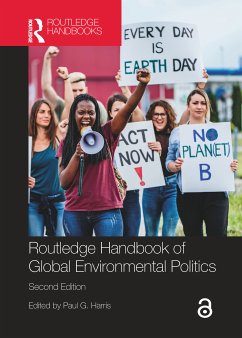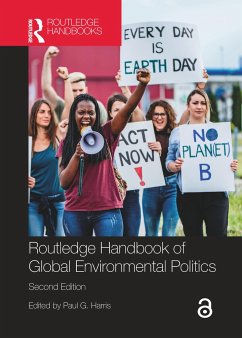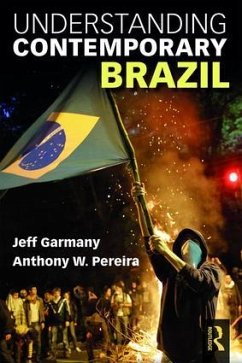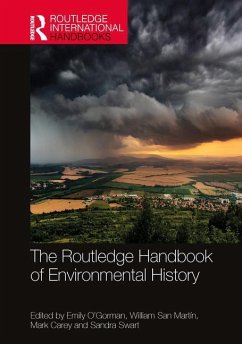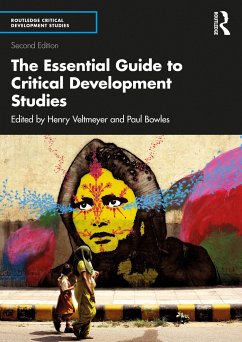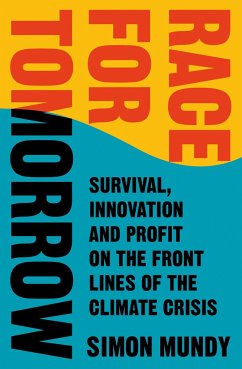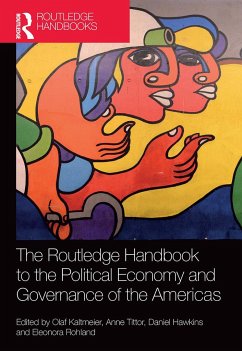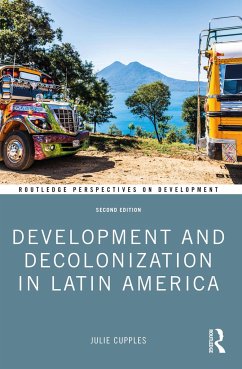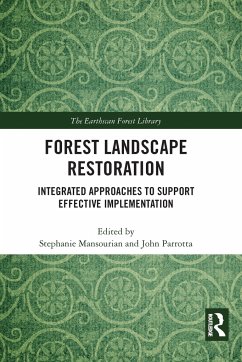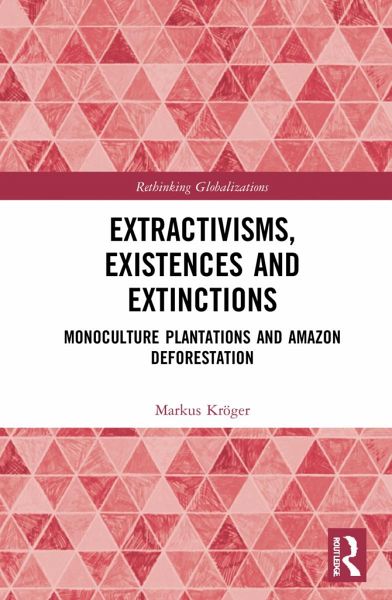
Extractivisms, Existences and Extinctions
Monoculture Plantations and Amazon Deforestation
Versandkostenfrei!
Versandfertig in 6-10 Tagen
43,99 €
inkl. MwSt.
Weitere Ausgaben:

PAYBACK Punkte
22 °P sammeln!
This book explores the existential redistributions that extractivist frontiers create, going beyond existing studies by bringing into the English-language discussion much of the wisdom from Latin American rural and forest communities' understandings of extractivist phenomena, and the destruction and changes in lives and lived environments they create.The author explores the many different types of extractivism, ranging from agroextractivist monocultures to mineral extraction, and analyzes the differences between them. The existential transformations of Brazil's Amazon and Cerrado regions, prev...
This book explores the existential redistributions that extractivist frontiers create, going beyond existing studies by bringing into the English-language discussion much of the wisdom from Latin American rural and forest communities' understandings of extractivist phenomena, and the destruction and changes in lives and lived environments they create.
The author explores the many different types of extractivism, ranging from agroextractivist monocultures to mineral extraction, and analyzes the differences between them. The existential transformations of Brazil's Amazon and Cerrado regions, previously inhabited by Indigenous people but now being deforested by colonizers who expand soybean plantations, are analyzed in detail. The author also compares extractivisms with the local and broader existential changes through global production networks and their shifts, produced by monoculture plantation-based extractivist operations. Anchored in the author's own ethnographic data and comparison of lessons across multiple extractivist frontiers, the chapters integrate the many accounts of violence, and onto-epistemic and moral changes in extractivist enclaves, looking at these with the help of political ontology. The book offers details on how to characterize and compare different types and degrees of extractivisms and anti-extractivisms.
This transdisciplinary book provides new organizing concepts and theoretical frameworks for starting to analyze the unfolding natural resource politics of the post-coronavirus era, the advancing climate emergency, and the ever more chaotic multi-polar world. It will be of interest to students and scholars in the fields of international development, global value chains, political economy, Latin American Studies, political ecology, and international trade, as well as anyone engaged with the practical and political issues related to globalization.
The Open Access version of this book, available at www.taylorfrancis.com, has been made available under a Creative Commons Attribution-Non Commercial-No Derivatives 4.0 license.
The author explores the many different types of extractivism, ranging from agroextractivist monocultures to mineral extraction, and analyzes the differences between them. The existential transformations of Brazil's Amazon and Cerrado regions, previously inhabited by Indigenous people but now being deforested by colonizers who expand soybean plantations, are analyzed in detail. The author also compares extractivisms with the local and broader existential changes through global production networks and their shifts, produced by monoculture plantation-based extractivist operations. Anchored in the author's own ethnographic data and comparison of lessons across multiple extractivist frontiers, the chapters integrate the many accounts of violence, and onto-epistemic and moral changes in extractivist enclaves, looking at these with the help of political ontology. The book offers details on how to characterize and compare different types and degrees of extractivisms and anti-extractivisms.
This transdisciplinary book provides new organizing concepts and theoretical frameworks for starting to analyze the unfolding natural resource politics of the post-coronavirus era, the advancing climate emergency, and the ever more chaotic multi-polar world. It will be of interest to students and scholars in the fields of international development, global value chains, political economy, Latin American Studies, political ecology, and international trade, as well as anyone engaged with the practical and political issues related to globalization.
The Open Access version of this book, available at www.taylorfrancis.com, has been made available under a Creative Commons Attribution-Non Commercial-No Derivatives 4.0 license.





